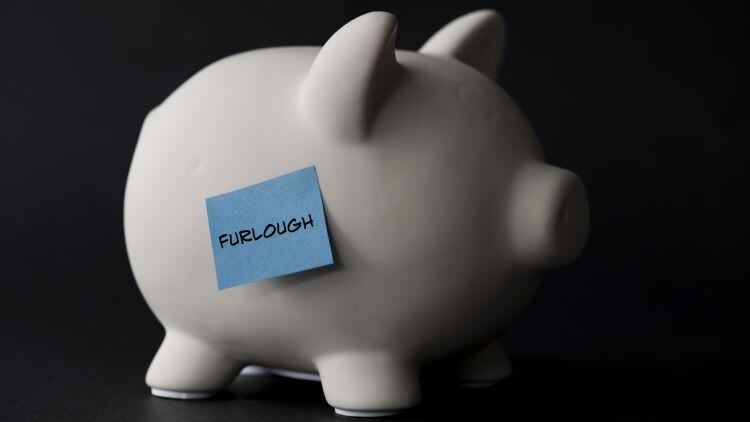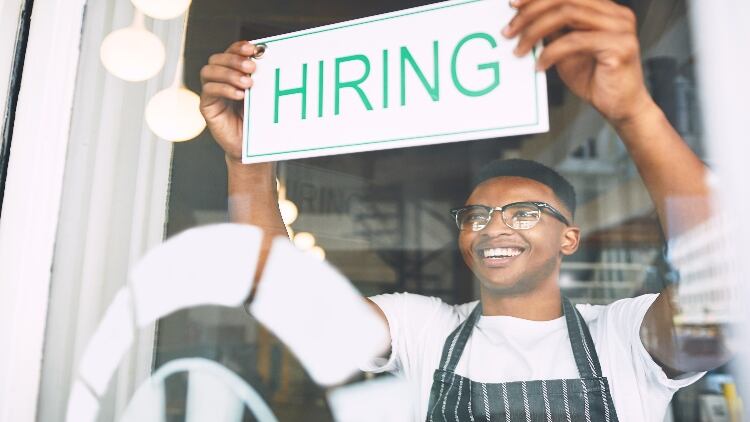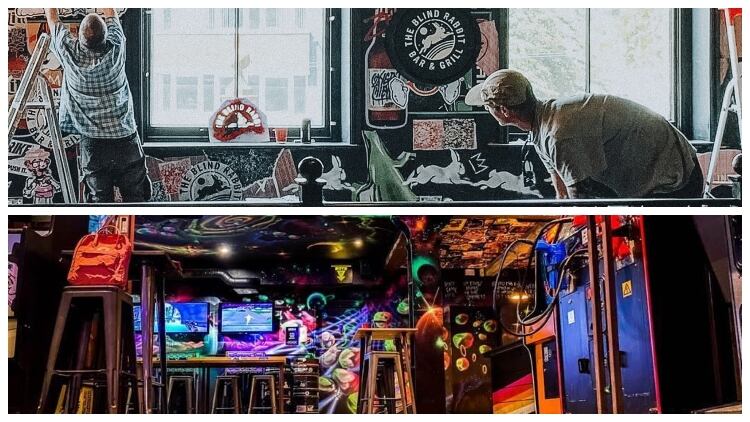Friday 5 November - Most furloughed employees now back to work
Data from the Office of National Statistics has revealed most workers on the Coronavirus Job Retention Scheme at the end of September have now returned back to their jobs, The Morning Advertiser's sister title MCA reported.
The data found 65% of those workers went back to the same hours while almost a fifth (16%) returned on reduced hours and 6% had a rise in hours.
The same percentage (6%) either left voluntarily or were laid off.
Read more here.
Wednesday 3 November - 'Extend the VAT at 12.5% permanently with the creation of a new 12.5% Tourism Tax'
A petition calling on the Government to make the 12.5% VAT rate a permanent fixture has reached just over 2,000 signatures.
At his recent Budget, the Chancellor made no mention of keeping the temporary rate, suggesting it will go back to 20% in April next year.
Tuesday 2 November - 'No evidence for Christmas lockdown'
Prime Minister Boris Johnson has said there is "no evidence whatever to think any kind of lockdown is on the cards", according to reports from the Mirror.
The national newspaper reported Johnson as saying data is being monitored and while cases are high, this isn't indicating the country should move to the Government's Plan B, before encouraging people to get their booster jab.
Last year, the Government introduced its tiered system, which was in place across the festive period. This included people forming Christmas bubbles however, while these bubbles were permitted to meet up in homes, they were not allowed to go to pubs with the people in their Christmas bubble.
Friday 29 October - Covid passes may be needed at Welsh pubs if infections rise
Covid passes may be needed to enter pubs in Wales if Covid infections continue to climb to allow the country to have a “normal” Christmas, according to first minister Mark Drakeford.
According to reports on the BBC, a set of new measures are already being brought in to tackle Wales’s high Covid rates, which are the worst in the UK.
The Covid passes show whether someone has been fully vaccinated or whether they have had a negative lateral flow test in the past 48 hours. Obtained online, they are already required for nightclubs and many large events.
It is thought the passes will be extended to cinemas, theatres and concert halls from 15 November as part of the plans.
Wales is currently at alert level zero after most of the remaining lockdown rules were lifted in August.
Unlike England, ministers have kept laws requiring people to wear masks in indoor public places – other than pubs, restaurants and nightclubs – and still ask people to work from home.
Ministers have repeatedly said they do not expect to have to return to lockdown-style restrictions, but have not ruled it out and have drawn up a plan called Covid Urgent for doing so if pressure on the NHS becomes unsustainable.
If implemented it would mean the Welsh government going further than the proposed Plan B in England, which Tory ministers have been under pressure to introduce, but much of which is already in place in Wales.
Drakeford told BBC Radio Wales Breakfast if infections continue to rise in the next three weeks, more restrictions could return to save Christmas this year.
“We are not planning to have a Christmas of the sort we had to endure last year but taking the actions we’re talking about today will be critical to allowing us to be in that position,” he said.
Thursday 28 October - Trade reacts to Budget
The industry has issued a plethora of responses to the Budget announcement from Chancellor Rishi Sunak yesterday (Wednesday 27 October).
While the news about a 50% discount on business rates was welcomed, the £110,000 cap was labelled a "huge dampener" by the British Beer & Pub Association.
The fact there was no mention of extending the reduced 12.5% VAT rate, suggesting it will go back to the full 20% next April was "disappointing" according to night-time economy adviser for Greater Manchester and operator Sacha Lord.
14.30 - The Budget lowdown
Catch up with all the details from today (Wednesday 27 October)'s Budget below.
- 50% business rates discount for hospitality sector
- Planned duty increase for alcohol drinks scrapped
- Disappointment about 12.5% VAT not mentioned in Budget
- Best Budget for pubs in a generation?
Wednesday 27 October - Chancellor set to lay out Budget
The Government's Budget is set to be unveiled today (Wednesday 27 October).
It is expected Chancellor Rishi Sunak will announce a rise in National Living Wage to £9.50 an hour.
Trade bodies have called for a permanent 12.5% VAT rate alongside a reform of the business rates system.
A snap poll from The Morning Advertiser (MA) found the lower VAT rate was the top ask for the Budget.
The MA will keep you up to date on the latest news from the Budget and will be sending a Budget Special newsletter with all the information on.
Tuesday 26 October - 6.6% hike to NLW
National Living Wage (NLW) is expected to rise by 6.6% to £9.50 an hour from April 2022, according to reports.
The increased hourly rate is up from £8.91 and applies to workers aged 23 and over. For employees aged 21 to 22, the rise will be from £8.36 to £9.18, according to The Guardian.
The Morning Advertiser's sister title MCA reported UKHospitality boss Kate Nicholls said the hospitality sector was already committed to good and fair pay for its staff.
She added: "As a result, wages in the sector are already increasing steadily – approximately 20% over the past five years, with further growth since post-Covid reopening.
"This is against a backdrop of massive post-pandemic challenges for businesses in the sector, many of which have had to take on huge debts in order to survive and now face soaring inflation costs of 13%.
"Further support is therefore vial if the sector is to be able to invest in its people, drive job creation and contribute to wide economic recovery."
She went on to say the most powerful measures the Government could take to help the sector is business rates reform and for the 12.5% VAT to be made permanent.
14.51 - What do you want from the Budget?
With the upcoming Budget taking place, we want to know which measure would be most beneficial to you and your business. Vote in our poll and contact nikkie.thatcher@wrbm.com to tell us more.
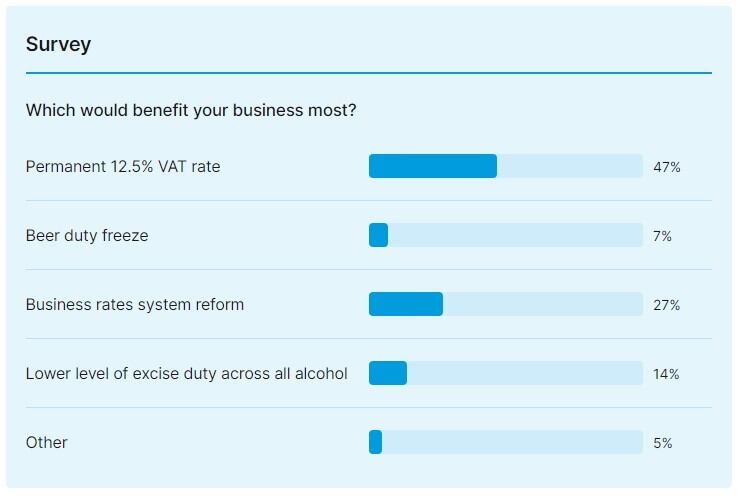
Friday 22 October - Budget asks include permanent 12.5% VAT rate and business rates reform
The upcoming Budget is set to be revealed by Chancellor Rishi Sunak next week (Wednesday 27 October) and trade bodies have been calling on the Government for a number of asks to help the sector.
UKHospitality has urged the Chancellor to "lock in" the 12.5% VAT rate for the long term as well as a reform of the business rates system.
The British Beer & Pub Association (BBPA) met with Treasury officials earlier this week (Monday 18 October), and listed its three key asks for the Budget as cutting beer duty overall, extending business rates relief and permanently lowering VAT for all food and drink sold in pubs.
However, licensee of the Plough and Barleycorn in the Isle of Wight, Gav Young claimed a duty cut would "do nothing to help pubs".
Thursday 21 October - 'No plans for further restrictions'
At a press conference last night (Wednesday 20 October), health secretary Sajid Javid stated there was no sign the Government's Plan B, which would include vaccine passports in certain settings and legally mandating face coverings in certain settings, is going to be implemented.
While health leaders have called for 'Plan B' to come into force to avoid a "winter crisis", business secretary also said it was not time for it to be implemented yet.
According to the BBC, yesterday (Wednesday 20 October), Downing Street said there were no plans to execute Plan B for winter and the data would continue to be monitored but vaccinations had broken the link between cases, hospitalisations and deaths.
Wednesday 20 October - Government warned of 'terrifying price rises'
Food and Drink Federation chief executive Ian Wright told MPs inflation is currently between 14% and 18% for hospitality businesses, the BBC has reported.
Wright outlined to Business, Energy and Industrial Strategy (BEIS) members the rise in inflation amid continuing supply chain disruption needed to be considered.
He said: "The committee really needs to think serious about inflation. In hospitality, inflation is running between 14% and 18%, which is terrifying."
Tuesday 19 October - Environmental issues at heart of UKHospitality-hosted COP26 event
UKHospitality (UKH) is set to host an event at COP26 to set out the sector’s net zero ambitions.
The trade body is inviting operators and industry representatives to attend the 2021 United Nations Climate Change Conference (COP26), which runs from 31 October until 12 November, in Glasgow, where they can join MPs, Scottish parliamentarians, sustainability experts and suppliers to celebrate the strides the hospitality industry is making on its sustainability journey.
The event is free to attend and will set out the sector’s net zero ambitions, as well as offering attendees practical advice to reduce costs and carbon emissions.
Speakers at the UKH-hosted event, will take place on Wednesday 10 November, from 2pm until 6pm at Revolution Glasgow, Mitchell Street, include UKH chief executive Kate Nicholls; Zero Carbon Forum founder Mark Chapman; Scottish minister for Business, Trade, Tourism and Enterprise Ivan McKee; and Shadow minister for Business and Consumers Seema Malhotra MP.
Carbon negative brewer and bar operator BrewDog will join a panel to talk about the opportunities and challenges involved in driving more sustainable businesses.
Nicholls said: “COP 26 will be a significant showcase for the UK and this event is an opportunity for our industry to shine a light on the good work that is being done to ensure a sustainable future for all of us. It is vital the entire industry is represented and that everyone participates in a conversation that will shape the future of our industry and the country, and so we urge anyone who is interested in attending to come along and be part of something significant.”
Monday 18 October - Vaccine passports in Scotland now mandatory by law
Only clubgoers who have proof of double vaccination will be permitted to enter clubs in Scotland from today (Monday 18 October).
Vaccine passports for entry into nightclubs and large events is now enforceable by law.
The scheme came into effect earlier this month (1 October) and firms were given 17 days to allow time to test procedures.
UKHospitality Scotland director Leon Thompson told BBC Radio Good Morning Scotland customers needed to be ready.
He also said as a result of the pandemic and Brexit, there was a "chronic" shortage of door staff, meaning checking vaccination status of clubgoers would remain a challenge.
Door security staff shortages in the night-time economy overall is becoming "critical", according to Night-Time Industries Association CEO Michael Kill.
He added: "We carried out a survey a few months ago which found that security resource in the sector was only at 70%, and I am afraid that the situation has only deteriorated further since then.
"Whether it is through acting as a first line of defence against a terrorist attack, or intervening to break up violent incidents, licensed security staff are fundamental to public safety. The current shortages are beginning to put the public in real jeopardy.
“Like in other sectors currently seeing shortages, this is a long term issue and decline in security resources can be tracked back at least three years, but this has been hugely exacerbated by the pandemic with many licensed staff leaving the sector when the bars and clubs closed and now choosing not to return. Brexit hasn’t helped either, but it is far from the only factor at play here.
“There are steps the Government can take to ease the problem, whether that be funding training initiatives, streamlining new training requirements, or tackling shortages through legislation – and I would also like to see them revisit the issue of temporary visas to assuage the crisis. [The] Government must come to the table and look at these solutions we are putting forward as sector – this is a serious problem, which, if left alone, may lead to a tragedy.”
Friday 15 October - Price rise warnings
With suppliers warning of price hikes coming into force, we want to know if this will mean you have to increase prices in your business.
Vote in our poll below.
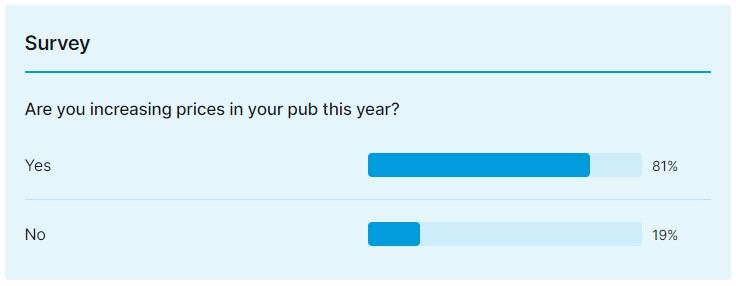
Thursday 14 October - Business rates overhaul delayed
According to reports in The Daily Telegraph, Chancellor Rishi Sunak will be delaying a reform of the business rates system.
While it is expected he will announce changes at the upcoming Budget this month (27 October), they will only be minor and not a full overhaul.
UKHospitality boss Kate Nicholls warned firms face a "cliff edge in April when business rate bill kick in, in full at highest level – based on property prices in 2015."
She went on to call for this to be addressed if the reform is postponed.
Wednesday 13 October - Economy grew on dining out
More people heading to hospitality venues to eat out when restrictions were eased earlier this year (July) helped the UK economy grow by 0.4% in August, figures from the Office of National Statistics (ONS) have revealed.
ONS director of economic statistics Darren Morgan said the economy picked up in the first full month of loosened restrictions on bars, restaurants and festivals, the BBC reported.
The ONS stated the hospitality sector was among those providing the strongest contribution to gross domestic product (GDP) – 0.28 percentage points of positive growth.
However, the official body also stated the economy is currently 0.8% smaller than it was pre-pandemic.
Tuesday 12 October - PM urged to maintain 12.5% VAT rate
A coalition of trade and membership bodies called on the Prime Minister to keep VAT at the current 12.5% rate.
In a letter to the PM, which was spearheaded by UKHospitality (UKH), the associations argued keeping the 12.5% rate for hospitality and tourism sectors will help accelerate the UK's economic recovery from the pandemic, safeguard the future of businesses and millions of jobs as well as allowing companies to invest in their workforce with higher wages and improved training opportunities.
Letter signatories included UKH, the Night-Time Industries Association, Sacha Lord, Hospitality Ulster and the Scottish Tourism Alliance.
The letter stated: "All of us in the hospitality and tourism sectors share that ambition and our businesses are present in all parts of the country, including, crucially, towns around the country that have been left behind, including coastal areas. We will be critical to your levelling-up agenda and we are eager to play our part. To facilitate our role there is one crucial lever that Government can pull – to keep VAT at 12.5%.
“The pressures on business at present are well-documented and are already creating inflationary pressures. Increasing VAT for our sectors back to 20% will push many to breaking point. Retaining it at 12.5% will relieve upwards pressure on prices and will leave people with more money in their pockets, while delivering on our shared goals.”
Monday 11 October - £100 contactless limit to start from Friday
From this Friday (15 October), pubgoers will be able to pay up to £100 on their card without entering their PIN.
In August, UK Finance announced the increase in contactless payment limit from £45 to £100 and said the decision to raise the limit was made by the Treasury and the Financial COnduct Authority, following a public consultation and in discussion with the retail and banking sectors.
It follows on from the limit being increased from £30 to £45 in April last year.
At the time the change was revealed, UK Finance chief executive David Postings said: "Contactless payment has proved very popular with consumers and an increasing number of transactions are being made using contactless technology.
"The increase in the limit to £100 will allow people to pay for higher value transactions like their weekly shop or filling up their car with fuel.
"The payments industry has worked hard to put in place the infrastructure to enable retailers to update their payments systems so they can start to offer their customers this new higher limit."
Chancellor Rishi Sunak stated the rise would be a welcome boost for retailers and shoppers.
He said: "Increasing the contactless limit will make it easier than ever to pay safely and securely – whether that's at the local shops or your favourite pub and restaurant."
Friday 8 October - Social distancing rule lifted in Northern Ireland
Social distancing of one metre in bars and restaurants in Northern Ireland will be scrapped from the end of the month (31 October) in hospitality venues, according to reports from the BBC.
Nightclubs will also be permitted to reopen for the first time since the pandemic began, with restrictions on dancing will also be removed.
Trade body Hospitality Ulster chief executive Colin Neill said: "The removal of social distancing will give hospitality businesses a huge lift as it will allow customers the opportunity to socialise normally and even enjoy a drink at the bar once again - a major element of our traditional pubs.
"This is a significant step forward for the industry as many of the hurdles to recovery are finally being removed.
"It is also great to see nightclubs will return after nearly two years of going dark. Nightclubs have been a much-missed part of the hospitality offer, especially for younger generations who have been denied the freedoms of dancing, music and big nights out.
"Importantly, the real-life implications of these removals mean that right across the industry, in our pubs, restaurants, coffee shops, hotels and our supply chain, jobs will be saved and protected."
Wednesday 6 October - PM to reveal 51p an hour NLW increase
The National Living Wage (NLW) is set to rise by 5.7% from £8.91, national reports have suggested.
It is expected the change will take place from April 2022.
According to The Times, the Prime Minister will accept recommendations that are likely to push up the pay to £9.42 an hour.
Currently, the rate for those aged 23 and over is £8.91 an hour.
In April this year, advisory body the Low Pay Commission estimated its 2022 recommendation would be rise up to £9.42 an hour.
Tuesday 5 October - Have your say
The upcoming Autumn Budget is set to take place on Wednesday 27 October and we want to hear from you about what the Government should do to help the sector.
Trade body UKHospitality (UKH) has called for a package of measures including a business rates system reform, a permanent 12.5% VAT rate, a lower excise duty level for all alcohol, and a code of practice on rent arrears.
Contact Nikkie Thatcher on 01293 610388 or nikkie.thatcher@wrbm.com to have your say.
Friday 1 October - Sector staff numbers not bouncing back
Although the furlough scheme has been essential, the staff numbers at hospitality venues has not returned to full strength meaning there is uncertainty for the future of many businesses.
Night Time Industries Association chief executive Michael Kill said: “Furlough without a doubt has been one of the saving graces of the pandemic, with industry now open and starting to bounce back, and furlough ending, we are still some way off pre-pandemic staffing levels.
“Much of the workforce have taken other roles while claiming furlough and have monopolised on their position, and when asked to return, decided to leave the sector with concerns around sector uncertainty.
“The implementation of winter operating restrictions are a concern for many businesses, presenting challenges on how to manage resource levels in the future while battling workforce confidence.
“Businesses that have been closed during the pandemic have fallen foul of contributions through July, August and September, at a time when they have no revenue, against other businesses that were able to open, albeit at a limited capacity.
“The months leading up to the end of furlough presented operators with some difficult decisions, with no clear sight of opening, many opted to streamline their workforce.
“Contractor and staff shortages are still a huge challenge for the sector, we need the headspace to rebuild, re-establish a talent pipeline, but confidence and sustainability is a big factor.”
Thursday 30 September - Furlough scheme ends, Government 'napping' on fuel crisis
The furlough scheme closes today, leaving an estimated one million people in the UK uncertain of their futures, according to the Office for National Statistics.
Forecasters, which includes the Bank of England, are expecting a small rise in unemployment as people either return to the jobs or face redundancy.
Chancellor Rishi Sunak said he was "immensely proud" of the furlough scheme, which cost close to £70bn but will now end despite many companies remaining in huge financial difficulties.
Meanwhile, Young's chief executive Patrick Dardis told the Standard the Government has been caught "napping" over the fuel crisis.
Worried about running out of some items on the menu of its pubs, Dardis said: "There will be a reduction in the products we offer, if CO2 and fuel shortages continue.
"The Government were caught napping again. They need to get a grip. What else can be thrown at business and the economy? It is the perfect storm."
Wednesday 22 September - Business confidence 'shattered' after Scottish Government defines 'nightclub' for vaccine passport rules
Scottish First Minister Nicola Sturgeon said vaccine passports will cover operations open between midnight and 5am, serving alcohol after midnight, playing live or recorded music for dancing and has a designated dancing space that is used.
The plan, which Sturgeon outlined to MSPs, is set to come into force from 1 October and will apply to indoor and outdoor events as well as large sporting events including football matches alongside nightclubs.
UKHospitality executive director for Scotland Leon Thompson said: "The First Minister confirmed that the definition of a nightclub, devised by Scottish Government officials and approved by ministers, will capture swathes of Scotland’s night-time economy.
"Not sticking to the stated aim of vaccine certification for nightclubs has brought the potential for businesses serving alcohol after midnight within scope.
“UKHospitality Scotland argued for a narrow definition, similar to that which the Scottish Government used when allocating financial support during lockdown. The decision to go broad will impact on even more of our most vulnerable businesses, many only just reopened and struggling with crippling and ever mounting debts.
“With only days until vaccine passports come into force and no guidance or public information available - nor any assessment on business or equality impacts in place-business confidence has once more been shattered, whilst the public is left in the dark on what they need to do in order to enjoy a night out with friends.”
Tuesday 21 September - New tip plan to be unveiled
National media outlets have reported the Government is set to reveal plans to prevent businesses such as pubs from keeping service charges, which they are currently permitted to do when customers pay via card.
While at present, there are no specific laws around tips however, cash tips given to staff legally belongs to them.
The expected plan, which is due to be announced this week, will help ensure hospitality workers are entitled to keep all of their tips.
Monday 20 September - Trade set to benefit from simplified travel rules for overseas visitors
The relaxation of rules for overseas visitors who are double vaccinated could help the sector, according to the Society of Independent Brewers (SIBA).
SIBA chief executive James Calder said: "Tourists travelling to England have a visit to a traditional English pub at the top of their ‘must visit' lists, so it is welcome to see Covid travel restrictions for fully vaccinated visitors set to be simplified.
"Pubs and cask beer are intrinsically linked and as well as boosting pub trade, more tourism helps increase sales for brewers too. Independent craft breweries sell the majority of their beer into pubs, so an increase in overseas visitors will have a hugely positive effect in tourist destinations and cities across England.
"We would encourage the devolved administrations in Scotland and Wales to follow suit and allow more tourists the chance to taste a great pint in a British pub once more."
Thursday 16 September - Furlough to close in a fortnight
The furlough scheme is set to come to an end on Wednesday 30 September, more than 18 months after it was first introduced.
Chancellor Rishi Sunak first revealed the Coronavirus Job Retention Scheme when the pandemic hit the nation in March 2020.
Wednesday 15 September - Reduced VAT rate coming to an end
The temporary VAT cut on food, soft drinks and accommodation will be coming to an end on 30 September when it will rise to 12.5%.
This will remain in place until 31 March 2022 when the previous 20% rate will come into force again.
Will you be increasing your prices as a result of the VAT cut ending?
Vote in our poll below.
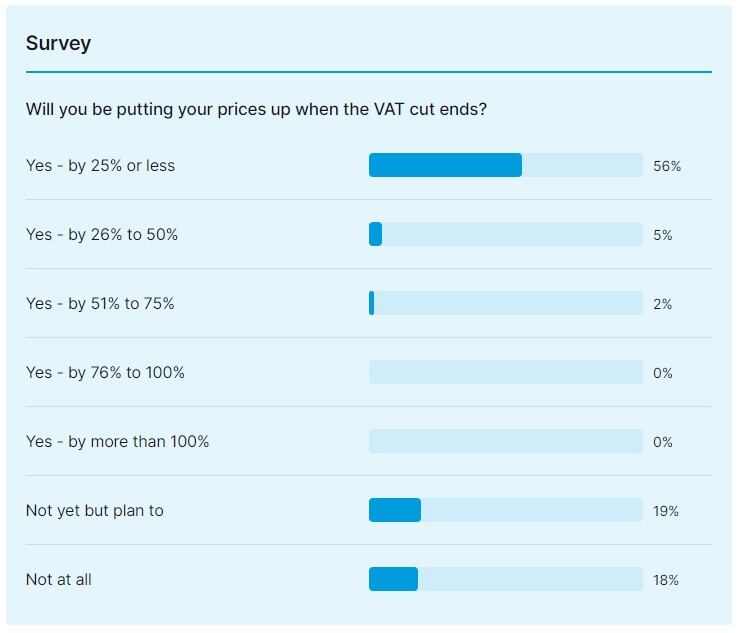
Tuesday 14 September - Johnson to announce winter plan today
Prime Minister Boris Johnson is set to unveil the Government's winter Covid plan later today (Tuesday 14 September).
Reports have stated Johnson will lay out plans for booster jabs for over 50s and according to the BBC, Government sources have stated further lockdowns are not being considered.
Monday 13 September - Gov to set out winter plan for managing Covid this week
The Prime Minister will reveal the Government's autumn and winter plan for managing coronavirus in a press conference this week.
While the exact date has yet to be confirmed, it is expected Johnson will repeal powers in England that are no longer necessary from the Coronavirus Act, as part of the plan.
This includes the powers to shut down sectors of the economy such as business premises or apply restrictions to events and gatherings.
It also includes powers that disrupt education and powers that extend time limits for urgent warrants alongside powers to detain infectious people.
However, legal requirements for isolation following a positive Covid test will remain.
Johnson said: "Thanks to the efforts of the public, the NHS and our phenomenal vaccination programme, we reached step four in our roadmap and life has returned to a sense of normality.
"These extraordinary times required necessary but intrusive measures. But I'm determined to get rid of any powers we no longer need because of our vaccine defences.
"I will set out the next phase in our Covid response shortly."
Friday 10 September - Trade bodies hit back at Scottish Government's vaccine passport proposals
The Scottish Parliament approved vaccine passports to entry into nightclubs and large-scale events last night (Thursday 9 September), with them coming into force from Friday 1 October.
The proposals have been pushed through without any meaningful consultation with the industry, said the Scottish Licensed Trade Association (SLTA) managing director Colin Wilkinson.
Read more about the trade bodies' reaction to the announcement here.
Thursday 9 September - Vaccine passports for Scotland to be voted on
Proposals for vaccine passports to allow double jabbed people into nightclubs, large sporting events, concerts and festivals.
According to reports on the BBC, the Scottish Government has said the plan to designed to permit large events to take place as safely as possible.
However, full details of the proposals have not yet been published.
UKHospitality Scotland told BBC Radio Good Morning Scotland members were "very concerned" about the lack of detail around how the passports will work.
Wednesday 8 September - Sector 'burdened with extraordinarily high levels of taxation'
A rise in national insurance (NI) contributions will aim to pay for the social care system in England, the Government has revealed.
Announced yesterday (Tuesday 7 September), the new health and social care tax will mean employees and self-employed workers will pay more tax from April next year.
This will first come into force as a 1.25 percentage point rise in NI.
From April 2023, NI will revert to its current rate but the health and social care tax will be introduced at 1.25%.
Employers will have to pay the increased NI amount and the levy.
However, those who earn less than £9,564 will not have to pay NI or the new levy.
The British Beer & Pub Association said the new tax will be a minor cost for employers and reduce spending money of pubgoers but, it doesn't expect it to have a major impact on the sector.
UKHospitality chief executive Kate Nicholls said the sector had always been more than happy and committed to paying its fair share in tax.
She added: “But it is burdened with extraordinarily high levels of taxation compared to other industries, and relative to hospitality in other countries. A tax increase will be hard to swallow for hospitality businesses, especially after the crippling trading environment of the past 18 months.
"We have long advocated for reform of NI to support jobs and wages, with a focus on increasing the thresholds for employers and employees, to protect those on entry level pay rates, create jobs and incentivise newcomers into the sector. This would be a sensible compromise here.
“For the customers - the lifeblood of our sector - any move that leaves less money in their pockets is detrimental to wider consumer sentiment and the economy. We need the Government to build confidence and encourage greater levels of consumer spending.”
Tuesday 7 September - Furlough scheme closing this month
The Coronavirus Job Retention Scheme, known as furlough, will be closing at on 30 September.
At the end of June, 19% of employees in the food service and accommodation sector were on furlough, according to figures from the HMRC.
This was down by almost 292,000 from 629,700 when compared with the take up rate of employments at the end of May - meaning the sector had the largest reduction of workers on furlough between 31 May and 30 June.
Monday 6 September - Vaccine passport plan 'hammer blow'
The Government's plans to introduce mandatory Covid passports for parts of the hospitality sector such as nightclubs could mean firms are forced to let staff go, impacting the ongoing recruitment crisis, trade body UKHospitality (UKH) has warned.
UKH chief executive Kate Nicholls said: "A scheme introducing mandatory Covid passports for certain venues and events will be unworkable, cause conflict between staff and customers and will force business to deal with complex equality rules. Operators may even be forced into a position where they have to let unvaccinated staff go, at a time when there are record levels of staff shortages across the industry.
“The hospitality sector has invested heavily to ensure customers are safe and we have proved venues are Covid secure. Introducing a scheme such as this will be a hammer blow to businesses such as nightclubs that were closed by the Government for nearly 18 months, and have only recently been able to trade viably and make progress toward rebuilding and paying off accrued debts.
“Over the past year our sector has been devastated and businesses have only known forced closure or the most severe restrictions. This policy will be devastating for businesses that remain fragile and will certainly derail recovery and cost thousands of jobs.”
Survey - No shows and deposits
Vote in our poll about deposits and no shows.
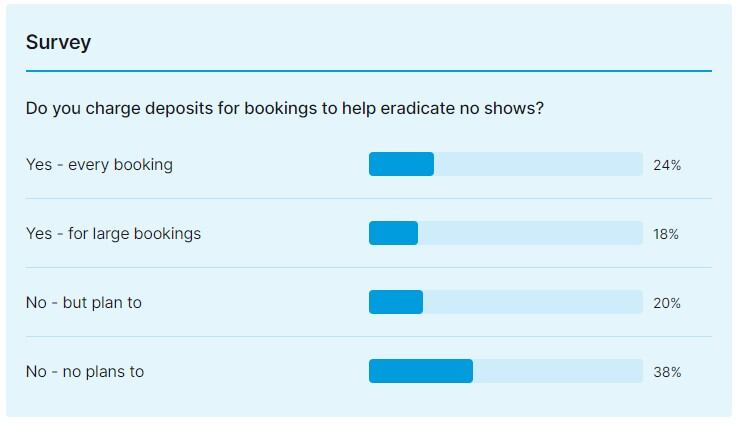
Friday 3 September - Security sector only supplying 70% of resource to hospitality industry
A flash poll of 2,000 operators in the late-night sector, conducted by the Night-Time Industries Association (NTIA) revealed more than 50% of hospitality operators are being affected by security shortages.
Furthermore, it revealed up to a fifth (20%) of businesses are closing or having to operate on reduced hours to licensing.

NTIA boss Michael Kill said: "Licensed security operatives are fundamental to public safety within the night-time economy business settings and over the past three years, we have seen a slow decrease in security resources, which has been exacerbated since the start of the pandemic with the closure of the night-time economy.
"The current resource levels depicted by the results [of the NTIA survey] show a very clear issue which will, if ignored, culminate in a weakness in frontline security, compromising businesses and staff across the country.
"The Government must intervene and support the regulator and the sector to reach a short and long-term strategy to resolve the ongoing issues, which will affect businesses across the UK."
Wednesday 1 September - 'More details about vaccination for nightclub entry in coming weeks'
Downing Street has confirmed clubgoers will be required to be have full vaccinations as a condition of entry.
An official spokesman for the Prime Minister said: “We set out broadly our intention to require our vaccination for nightclubs and some other settings and we’ll be coming forward in the coming weeks with details for that.”
Read how voices from the trade have reacted here.
Tuesday 31 August - 'Good weather leads to spontaneous pub visits'
JW Lees boss William Lees-Jones shared how the business traded in recent days on social media.
He said the firm served 33,915 meals last week. More than a quarter (29%) of those were booked reservations (after 17% of those cancelled or were no shows), leaving 71% being walk ins.
Friday 27 August - Spending limit on contactless card 'tap' to increase
Contactless card transactions spending limit will rise to £100 from 15 October, according to the BBC.
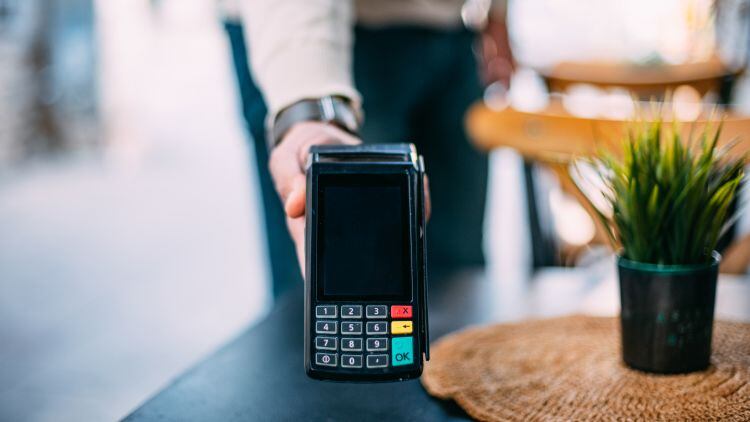
Currently, customers can pay for transactions of up to £45 by tapping their card – this was raised from £30 at the start of the pandemic.
Contactless card payments were first introduced in 2007 where the limit was £10 and the amount was gradually increased to £20 then £30.
BBC reports Chancellor Rishi Sunak said increasing the limit will make paying food goods and services safely and securely easier.
Thursday 26 August - Ask for Angela initiative rolled out across London
The Metropolitan Police and Mayor of London have teamed up with Safer Sounds and licensed venues across the capital in a bid to help keep people safe on nights out.
The 'Ask for Angela' initiative, where customers can ask bar staff for 'Angela' to indicate they feel uncomfortable or threatened also helps train staff to help these guests.
So far, more than 600 frontline staff from over 400 London venues have been trained since the start of August.
Wednesday 25 August - Trade pays 2.5% of all business rates
Pubs are overpaying their fair share of business rates by £570m a year, the British Beer & Pub Association (BBPA) has estimated.

The trade body also stated the sector pays 2.5% of all business rates, despite accounting for 0.5% of rateable turnover.
This comes in response to the Treasury's consultation on business rates revaluations, and particularly revaluating business rates every three years.
According to the BBPA, the multiplier has risen to 51.2p today - up from 34.8p inthe early 90s.
Trade bodies including the BBPA are calling for 'radical change' of the business rates regime.
Read more here.
Monday 23 August - Night-time operators already seeing impact of Covid passport plans
Bookings and ticket sales for late-night businesses are already taking a hit, prior to the Government's mandatory Covid passport plans coming into force, the Night-Time Industries Association (NTIA) has said.

The trade association has addressed Prime Minister Boris Johnson, stating reopening the sector has not impacted rates to levels suggested.
It called on the Government to recognise the value of the industry's contribution and, to work with it in recognising the impact of the proposed measures.
Read more here.
Friday 20 August - Two thirds of hospitality businesses not receiving goods
The hospitality sector is battling "enormous challenges" in the supply chain, UKHospitality boss Kate Nicholls told a national newspaper.
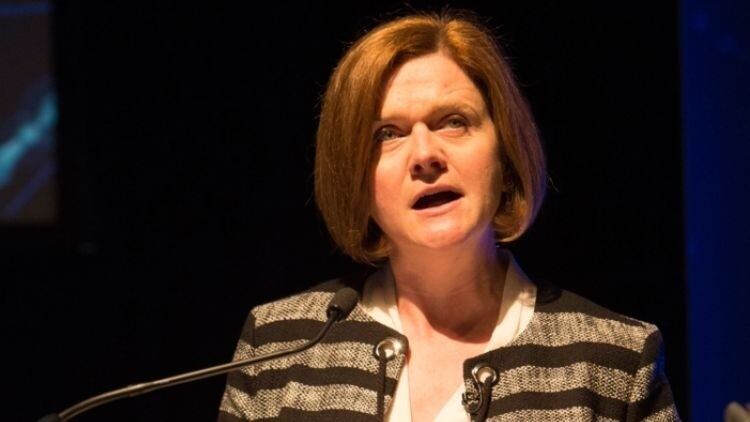
Operators are facing a combination of food supply issues, delivery delays and a recruitment crisis amid trading without legal restrictions.
Nicholls told The Independent: “About two thirds of hospitality businesses are saying some goods don’t arrive.
“This has the knock-on impact of reducing the menu they can offer customers and hitting sales.”
12.13 - Nightclub boss seeing 'record trading
Chief executive of Rekom UK Peter Marks has told The Morning Advertiser sales figures were up 150% of 2019 numbers.
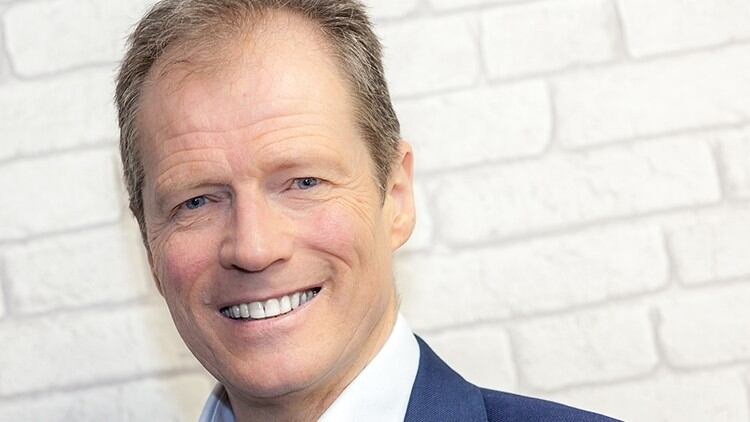
He said: “Since reopening, we have noticed more pre-booking than usual as people want to make sure they can get in, but the majority of our customers are still walk ins, as it was pre-pandemic.
"There is a clear high demand for clubbing now that we are back open again – particularly for young people, many of whom were hit hardest by Covid-19 restrictions while at university or entering the job market despite being part of a low risk group. They are excited to enjoy a night out after all this time and regain some of what has been lost since March 2020.”
Read more here.
Thursday 19 August - Reasons behind chicken shortages
The reported shortages in poultry supplies are down to pay and working conditions in factories, Unite has claimed.
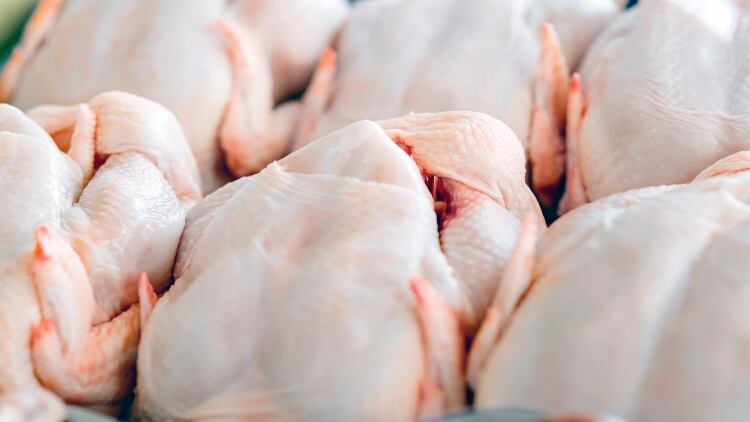
Unite national officer for food, drink and agriculture Bev Clarkson described the conditions for staff as "awful".
She said: "The terrible pay and working conditions that make the meat processing industry one of the worst places to work in the UK are coming home to roost with the nationwide chicken shortages.
“Chicken and egg debates about Brexit and the pingdemic ignore the real issue. The reason poultry processing staff shortages are resulting in closed restaurants and empty shelves is that the conditions are awful, and the pay is worse.
“Unite is able to help fix the problem by working with meat processors to improve wages and terms and conditions that will lead to the long term retention of staff.
“Major retailers and restaurant chains also have their part to play. They have wrung the neck of the poultry supply chain for year and years, leading chicken processors to adopt the employment practices that have led to the current labour shortages.”
British Poultry Council chief executive, Richard Griffiths, said that its members had been forced to cut back weekly chicken production by 5% to 10%, all year-round turkey production by 10% and estimates that Christmas turkey production to be cut down by a 20%.
Wednesday 18 August - Pubs likely to struggle with food supplies
Schools and businesses returning in September is likely to mean a higher demand for food orders, meaning shortages could increase, one report has found.
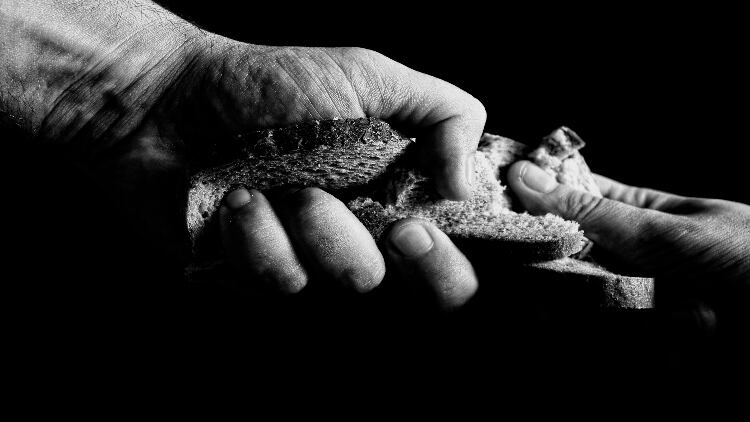
The CGA Prestige Foodservice Price Index said June brought a realisation to operators and suppliers that availability of labour will also be a challenge for the foreseeable future.
Prestige Purchasing CEO Shaun Allen added: "The difficulties with HGV drivers has been particularly impactful and operators should consult carefully with suppliers to ensure supply chains are as lean and efficient as possible.
Alongside this, the supply of poultry will impact pubs, according to Lynx Purchasing.
- Read more about issues to chicken supplies here.
Tuesday 17 August - Almost £1bn paid out in business interruption insurance claims
Figures from the Financial Conduct Authority (FCA) have revealed insurers have paid out more than £968m in Covid-19 business interruption insurance claims since the conclusion of the test case.

The Night-Time Industries Association (NTIA) has stated there should have been more paid out.
NTIA boss Michael Kill said: "I am not sure whether to applaud or be angry at the release of figures from the FCA on insurance claim payouts nearing £1bn, given that it should have been more.”
“Frustrating that the legal process took a considerable amount of time to come to a close, and in that time our sector lost many claimants, which in turn reduced the exposure to insurance companies. While the very businesses that refused to pay out are making money back with rising premiums
“In the past weeks, we have seen the launch of the festivals and event insurance scheme which has been met with muted frustration of too little too late, and the feeling that it's not something that is affordable for much of the sector, with many feeling it presents a false economy.”
Monday 16 August - Trade called upon to use independent, local brewers
Pubs are being urged to consider using local, independent brewers amid reports of issues of beer delivery delays from larger producers,
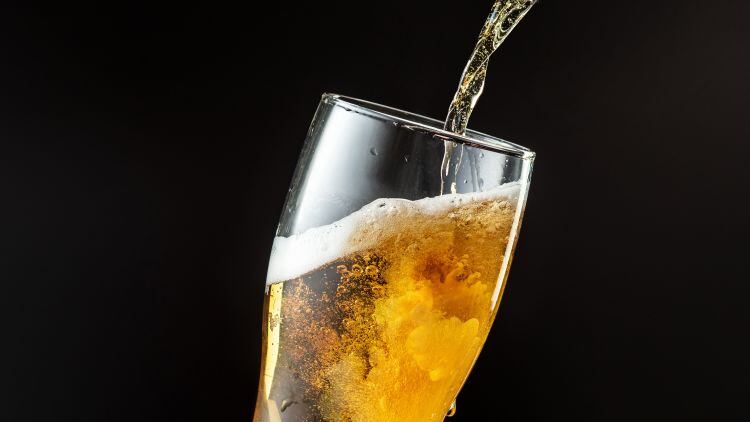
Society of Independent Brewers (SIBA) chief executive James Calder said: "Amid fears of taps running dry, pubs, bars and restaurants should look beyond mass-produced beers from the globals and speak to their local independent breweries. Being local they have the flexibility to brew and get beer directly into venues up and down the UK.
"British independent breweries are producing some of the best beers anywhere in the world and can be found across every corner of the UK. They are brewing a hugely diverse range of styles from lagers and pale ales, to porters, stouts and of course, cask real ale.
"As the hospitality industry fully reopens the UK’s independent brewers are ready and waiting to fill the supply gaps we’re seeing hit an already struggling hospitality industry.
“Distinct, quality local beers could prove more popular with customers than your original offering of global beer, which are available anywhere.
"Small independent breweries have suffered massively while pubs, bars and nightclubs have been closed, so now as the UK's hospitality industry begins on its road to recovery let’s work together and offer customers a great-tasting local lager, craft ale, IPA or stout.”
- Have you been hit by beer delivery delays? Participate in our poll below
Friday 13 August - Rule of six rule in Northern Ireland removed
Pubs in Northern Ireland will no longer have to adhere to the rule of six for dining at pubs and restaurants from Monday (16 August), according to the BBC.
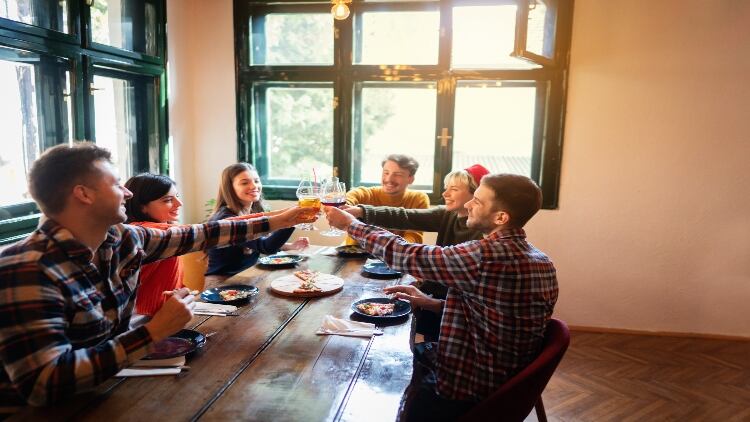
Reports also stated First Minister Paul Givan said he hoped all restrictions on pubs and restaurants could be lifted by the end of next month (September).
However, nightclubs do not yet have a reopening date.
Givan also said restrictions would remain under review.
14.40 - Are beer deliveries being delayed?
Tell us if you're being affected by delays in beer deliveries.
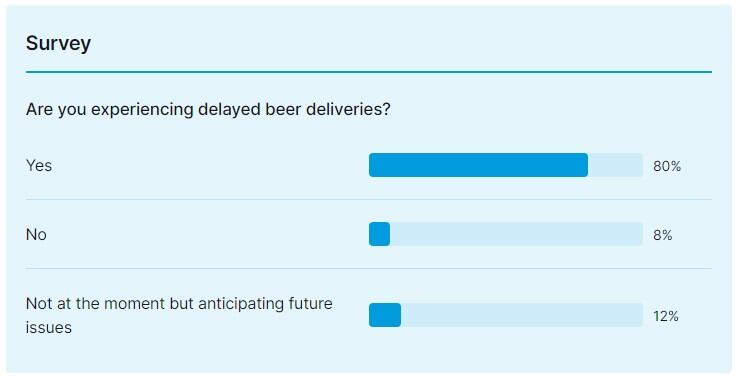
Contact nikkie.thatcher@wrbm.com to explain how this is impacting your business.
Thursday 12 August - Confirmation self-isolation for double jabbed to be scrapped
Those who have received two Covid vaccinations will no longer have to isolate if 'pinged' from next Monday (16 August), ministers have confirmed, according to the Daily Mail.

The trade has been hit with staff shortages amid the 'pingdemic' with many pubs having to close due to team members having to isolate after coming into close contact with a positive Covid case.
The Mail reported instead of a 10-day isolation, those contacted will be advised to take a PCR test instead.
However, anyone who does test positive will be legally obligated to isolate, no matter their vaccination status.
Wednesday 11 August - Three quarters of Brits received double vaccination
Some 75% of British adults have received two Covid vaccinations, official figures from the Government have revealed.
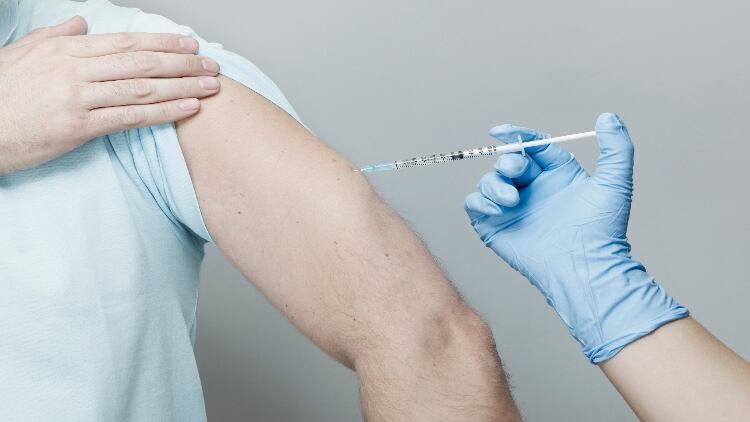
Some 86,780,455 of the vaccine have been administered in the UK, with 47,091,889 (89%) having received a first does and 39,688,566 (75%) receiving both doses.
This means the vaccination roll out is on track to offer all adults two doses by mid-September.
For pub staff, those who are double jabbed will not have to isolate if they are 'pinged' from Monday 16 August.
Tuesday 10 August - Hospitality and tourism industry 'offers rewarding careers'
Students receiving their A Level and BTEC results today (Tuesday 10 August) should look at a career in the sector, one trade body chief executive has shared.
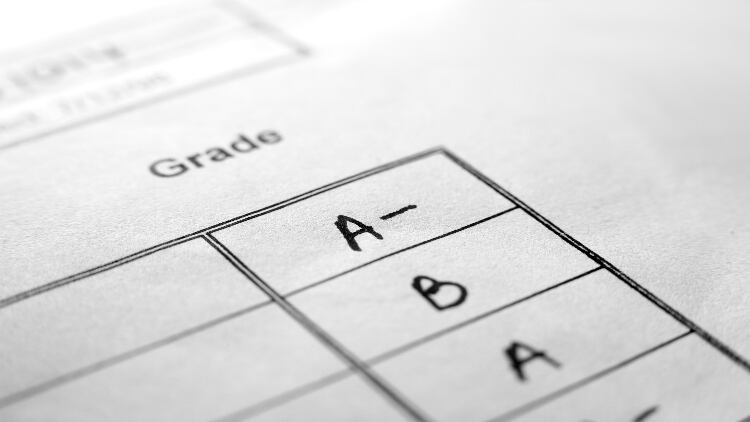
UKHospitality boss Kate Nicholls tweeted: "Wishing all the students receiving their A Level and BTEC results today - you should all be very proud of your achievements after such a tumultuous and disruptive 18 months but please remember as you open them, today does not and will not define you."
She went on to "highly recommend" a career in the hospitality and tourism sector.
Monday 9 August - 'Enforcing vaccine passports could mean remaining full open in future Covid waves'
Venues that only allow entry to double jabbed guests could avoid social distancing measures during potential Covid spikes in the future, according to reports by The Telegraph.
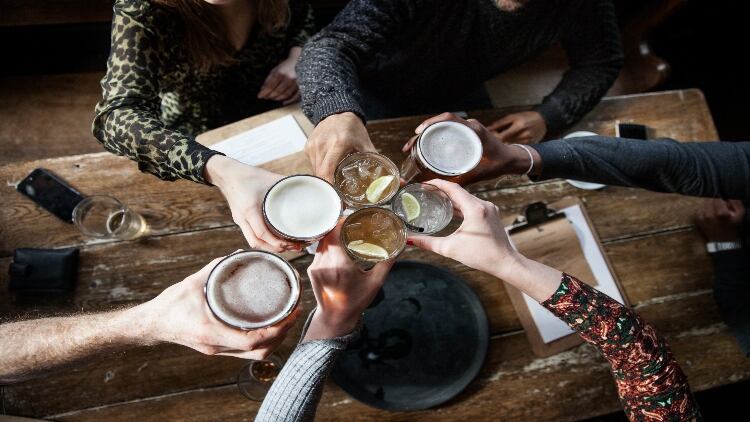
The newspaper reported the Government is considering the proposal instead of changing the law to make vaccine passports mandatory.
It would mean venues with large groups inside would not have use vaccine passports but would be offered incentives to use them instead.
The Telegraph reported it could include venues being permitted to trade at full capacity instead of having to use table service only if there is another wave of coronavirus cases.
Friday 6 August - 65% of UK adults in favour of bringing social distancing back
According to a YouGov poll of 1,516 people, 65% supported bringing social distancing back to pubs and restaurants.
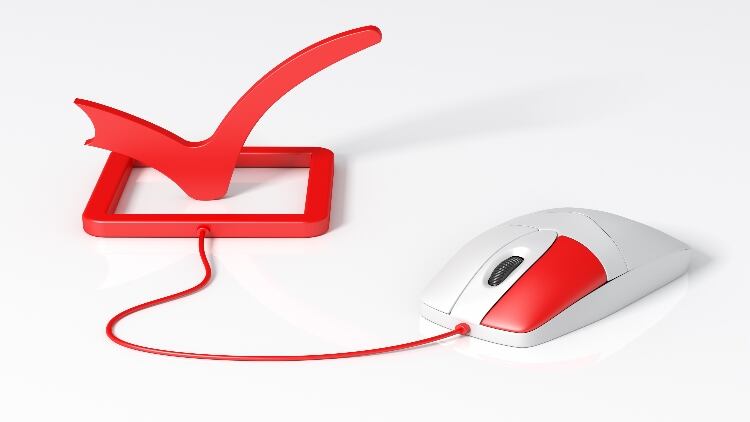
Furthermore, half (50%) were in favour of closing nightclubs however, when it came to closing pubs and restaurants, three quarters (74%) of those asked, strongly opposed closing pubs and restaurants.
Of the 11 restrictions the survey asked about, English people wanted to bring back five measures:
- 79% wanted face masks on public transport
- 76% wanted face masks in shops
- 65% wanted social distancing in pubs and restaurants
- 55% wanted the 2m rule in general
- 50% wanted nightclubs to close
Respondents were split about the 'rule of six' for indoor meetings where 45% supported bringing the measure back and 45% preferred to leave it behind.
Some 43% were in favour of cancelling large sporting and entertainment events while 46% opposed it.
Thursday 5 August - Warning about food shortage and ingredients price rise
Operators have been urged to prepare for a spike in inflation and warned about the chance of food shortages.
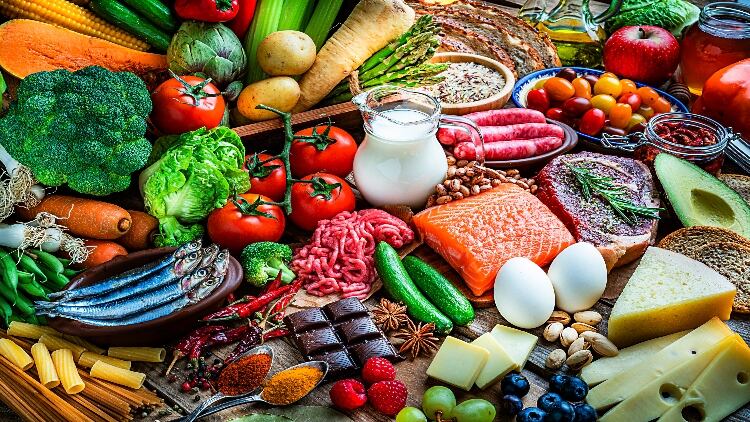
Buying specialist Lynx Purchasing’s Summer Market Update report looks as supply issues coming up and it cites a variety of food categories that could be hit by supply issues.
This included poultry as the combination of the impact of Covid-19 twinned with high demand, the report advised operators planning for Christmas to order early or plan alternatives.
Furthermore, for potatoes, it predicted UK crops were likely to be higher demand after floods impacted European growers with supplies for frozen chips particularly affected.
Read the full story here.
15.50 - Clarity on 'vertical drinking' for pubs in Scotland welcomed
It has now been confirmed vertical drinking in Scottish pubs will be permitted from next Monday (9 August) when most restrictions would be relaxed, following Deputy First Minister John Swinney's "confusing" comments on BBC Radio Scotland earlier today (Wednesday 4 August).
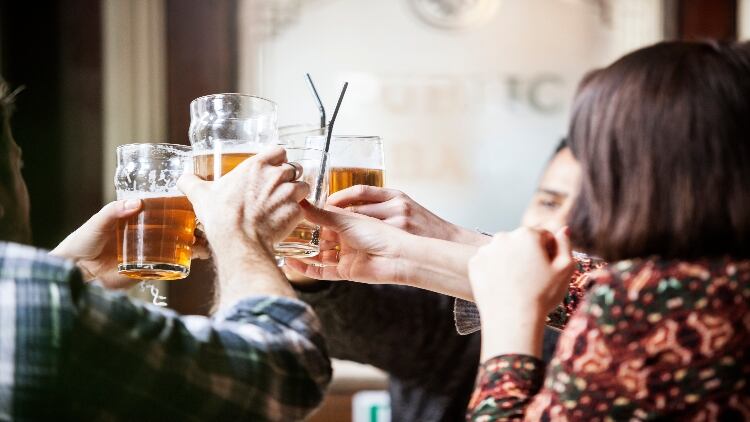
This morning, Campaign for Real Ale (CAMRA) Scotland director Joe Crawford described Swinney suggesting 'vertical drinking' would not be allowed as "extremely worrying".
However, senior advisor and policy manager at the Scottish Beer & Pub Association Paul Togneri tweeted there had been confirmation from Scottish Government officials that vertical drinking would be allowed from Monday.
Scottish Licensed Trade Associaton managing director Colin Wilkinson said: "It is absolutely critical to have this clarified although, we are still waiting for the final detail on this and other questions.
"However, we thank the Scottish Government for their time and hope further information is forthcoming before Monday. Swinney's comments were both unhelpful and misinformed."
Wednesday 4 August - Calls for recovery plan for Scottish hospitality
The Scottish Hospitality Group (SHG) has said the country needs an industry-specific recovery plan to help it return to pre-pandemic levels.

While UK Government business minister Paul Scully launched the UK Hospitality Strategy last month (July), SHG members are calling for a similar plan north of the border, to help encourage employees back into the sector, creating sustainable long-term jobs, improve city centres and sets out a strategy for future-proofing after prolonged closures.
The asks include:
- Rebuilding the sector through a regulatory environment, which allows businesses to provide jobs, create supply chain demand and invest in new facilities
- Work with the sector to promote hospitality careers
- Promoting the quality of Scottish pubs, hotels, restaurants and other venues in a bid to restore public faith in the sector
- Recognise the role hospitality businesses play in the health of the country's communities
SHG's Stephen Montgomery said: "Scotland is moving in the right direction, and we welcome the easing of restrictions, but it needs to go further. We need a recovery plan now that will entice people back into the sector and give them the confidence that they are entering a stable industry again.
“The lockdown has shown how hospitality can adapt in city centres and we are willing to put our weight behind new ways of operating, but we need support behind us to ensure that there are long-term solutions supported by the country and we are not left on our own again.”
14.30 - Scottish pubs permitted to trade without most restrictions from next week
Pubs in Scotland will be able to increase their capacity as the country moves beyond level zero from Monday 9 August, First Minister Nicola Sturgeon has confirmed.
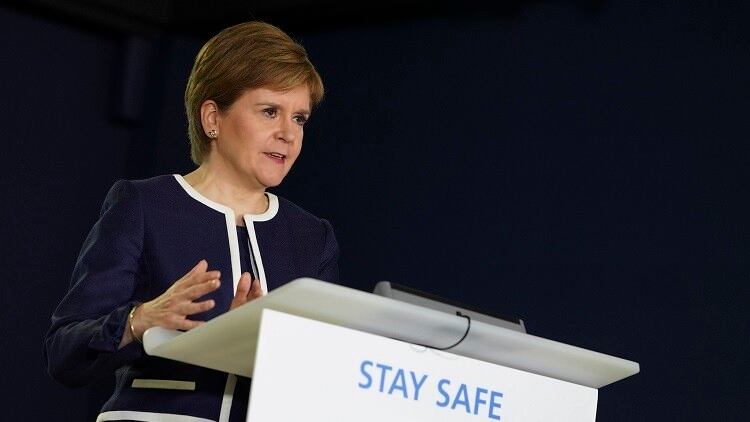
However, there will be a number of mitigating measures in place, according to the BBC.
These include face coverings being likely to be mandated in law for "some time" as well as Test and Protect continuing.
Sturgeon also outlined that large events will have to apply for permission, a continuation of home working and employers encouraged to do hybrid working, and localised restrictions will be enforced if necessary, as will travel restrictions.
She went on to confirm the latest coronavirus statistics for Scotland, which were 1,016 cases recorded yesterday (Monday 2 August), with 406 people in hospital care and 61 in intensive care.
The country has seen nine further deaths over the past 24 hours. More than 3m of the Scottish adult population have now had both doses of the Covid vaccine.
Tuesday 3 August - Pubs losing £9,500 a week due to 'pings'
Research from the British Beer & Pub Association (BBPA) has found pinged pubs having to close for two weeks lost an average of £9,500 per week.
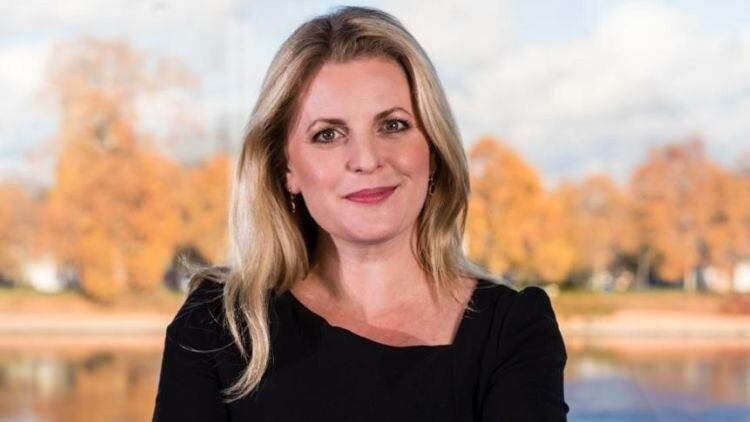
It estimated this meant the trade as a whole has lost revenue amounting to £36m.
While the change to the NHS Covid app was welcomed by the industry body, the BBPA called for further Government support to help boost the sector as it begins to recover from the pandemic.
In line with the Long Live the Local campaign, the trade body is urging the Government to invest in the sector through a VAT reform, beer duty and business rates, which it says "unfairly penalise pubs".
16.18 - Change to NHS app
A software update to the NHS Covid app will mean fewer people will be contacted after being in close proximity to a postive coronavirus case, according to reports.

At present, the app searches for close contacts of the postive case in the five days prior to a test however, the chage to the app will mean it will look back two days instead.
The BBC reported the Department of Health outlined the update means the app will look at the days when the person was at their most infectious.
The department added that the sensitivity of the app or its risk threshold will remain unchanged and the same number of high-risk contacts will be asked to isolate.
According to the BBC, health secretary Sajid Javid said: "We want to reduce the disruption self-isolation can cause for people and businesses, while ensuring we are protecting those most at risk from this virus. This update to the app will help ensure we are striking the right balance.
"It is so important people isolate when asked to do so in order to stop the spread of the virus and protect their communities."
This comes as the UK recorded a further 21,952 coronavirus cases in the past 24 hours.
Some 24 deaths within 28 days of a positive test were also reported – a rise of 20% week on week.
Monday 2 August - Food delivery companies offering discounts to encourage vaccinations
Uber and Deliveroo are among a number of businesses offering incentives for people to get the Covid-19 jab.
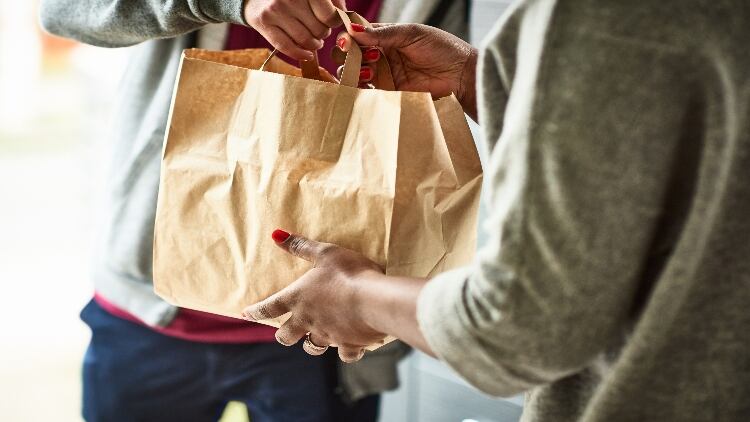
Reminders will be sent to all Uber users in August, encouraging them to get ther vaccine alongside discounts for Uber rides and meals on Uber Eats for young adults who receive the jab.
Other incentives are currently being discussed and could include vouchers or discount codes for people attending pop-up vaccine sites and booking through the NHS, social media competitions and promotional offers for restaurants.
13.00 - Wales to lift self-isolation requirements from 7 August
Trade body UKHospitality Cymru has welcomed the news that the easing of self-isolation requirements in Wales will come into force from Saturday 7 August.
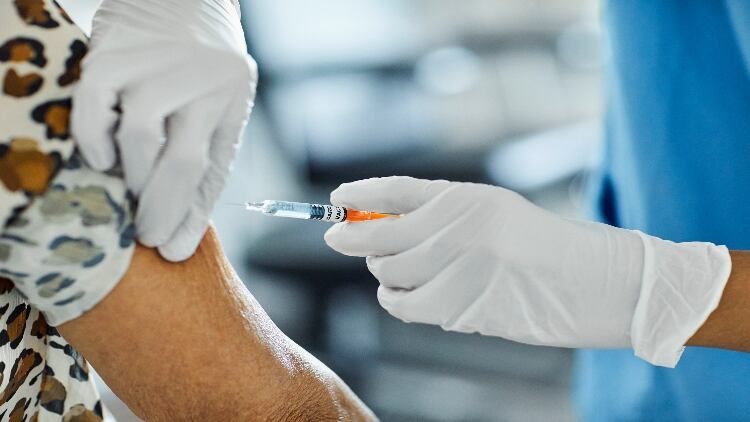
The Welsh Government said Wales will be the first country of the UK to stop asking fully vaccinated adults to self-isolate following close contact with a positive Covid case.
The association's director David Chapman said: "This represents a real breakthough for Welsh hospitality businesses and it is a very positive response to our regular reporting to Welsh Government of the shackles imposed on businesses by the 'pingdemic'."
It is estimated the change will impact more than 2m people who have been double jabbed and under-18s will also be exempt under the new rules.
Chapman added: "We have been telling the Welsh Government over the past few weeks of the havoc the self-isolation regime has created for many businesses already struggling to recruit sufficient staff to cope with the summer demand and preparations for a full reopening on 7 August, when Wales is due to relax restrictions.
"The message has certainly hit home. We're delighted our members now have a chance to fully reopen next week and to try and make the most of the visitor economy high season after months of economic turmoil."
Friday 30 July – Gov 'committed to vaccine passports by stealth'
The Government has been hit with claims vaccine passports have been "snuck onto phones".
NHS Covid Passes permits those using it to show proof of negative test, immunity or vaccination.
On the NHS app, it states: “Domestic – You may need to show your NHS Covid Pass at places that have chosen to use the service.”
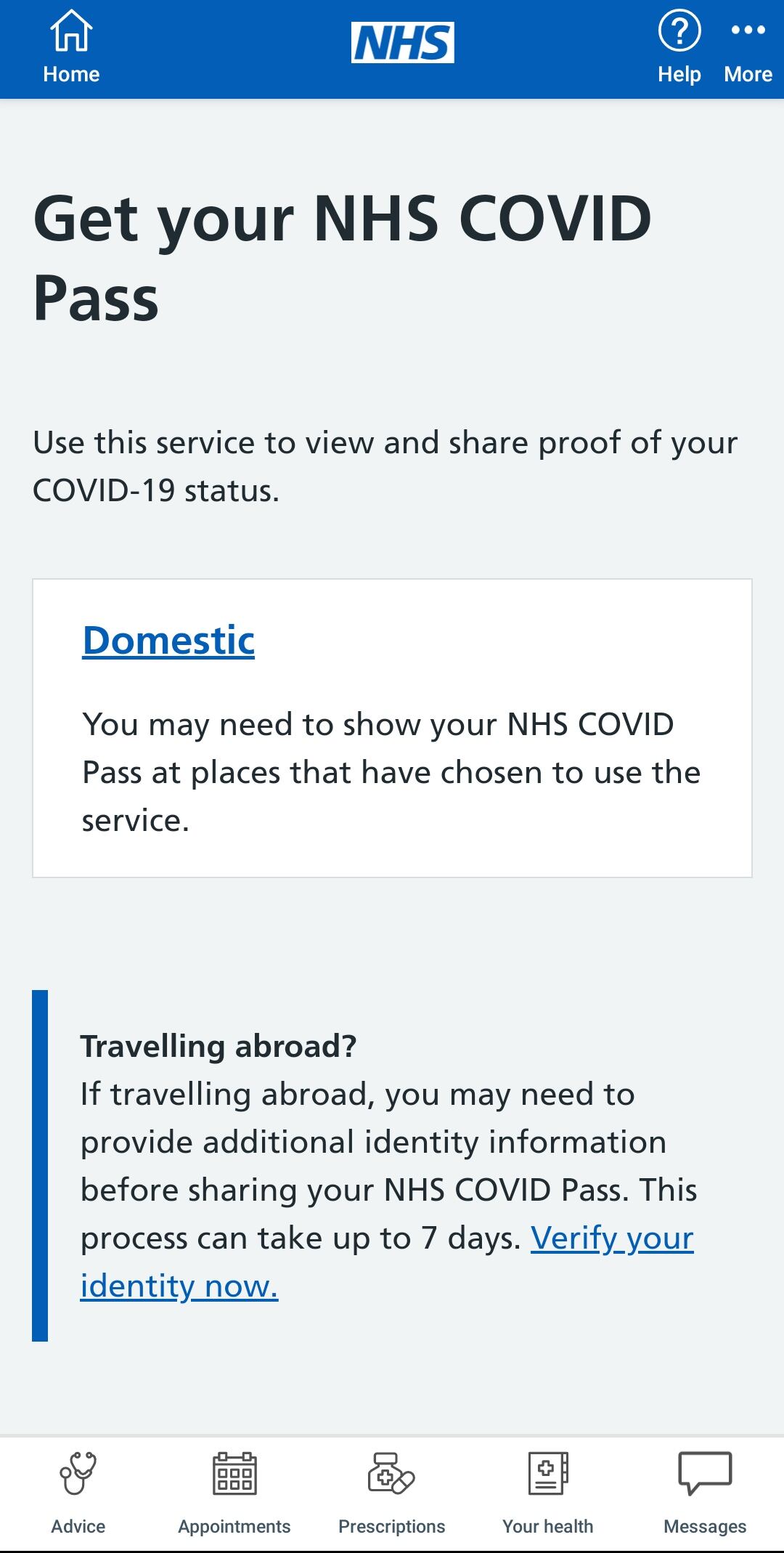
A paper pass can also be requested for people to prove their vaccination status.
Prime Minister Boris Johnson announced earlier this month (Monday 19 July) that proof of a double Covid jab would be made mandatory for clubgoers as of September.
Liberal Democrat home affairs spokesperson Alistair Carmichael said: “The Government has just committed to vaccine passports by stealth. This deceitful move is deeply shameful.
“We now have a new ID card snuck into our phones without even as much as a whisper from the Government."
All on phones
He added: “Just this morning (Thursday 29 July), ministers of TV and radio were flapping about when asked a simple question [about] how this would actually work. Now it is on all our phones.
“To get your vaccine passport, you have to type and click through a bunch of options. Just think of the faff getting into hospitality businesses, who don’t want it and can’t afford to pay staff to police it.
“The Conservatives are no strangers to a U-turn, they should have no problem with doing the right thing and scrapping vaccine passports for good."
Recall Parliament
Carmichael said: “At least when Tony Blair tried to introduce ID cards, he put a bill to Parliament. This lot won’t even open up Parliament to debate it. They must recall Parliament now if they are serious about this.”
Furthermore, the Daily Mail reported more than 50 MPS are prepared to vote against the vaccine passport plan.
BBC reported some nightclubs have started asking for the NHS Covid pass upon entry to the venue.


